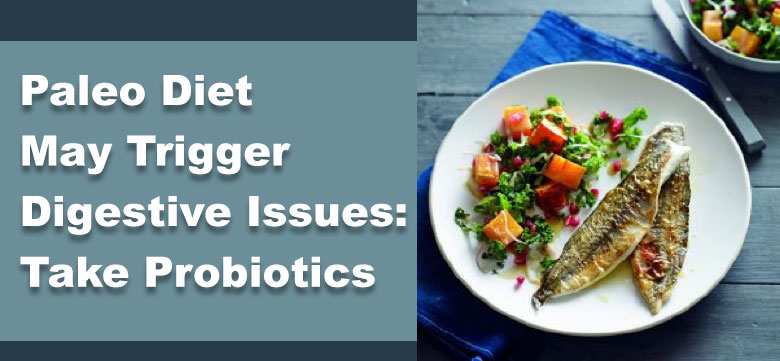In the year 2013, the Paleo diet was the world’s most popular diet. In the past recent years Paleo has attracted many star advocates and high-profile figues, but it is still very controversial among health professionals.
The popular Paleo eating plan looks at our human dietary requirements from an evolutionary perspective and the goal is to consume the same food groups as our hunter-gatherer ancestors. The diet is high-fat, low-carb and includes fruits, vegetables, grass-fed meats, fish, seafood, free-range eggs, nuts and seeds. Paleo eating plan discourages consumption of dairy, grains and processed foods.
Despite the Paleo diet’s effectiveness at helping some people lose weight and possibly helping lower blood pressure, reducing cholesterol and triglyceride levels, the diet plan may also be causing some harm.
A recent study1 compared the Paleo diet to a balanced diet from the Australian Guide to Health Eating (AGHE) which advices people to consume vegetables, fruit, grains, lean meat and dairy, while limiting saturated fat, sugars and alcohol. The four-week study involved 39 healthy women aged 34-60 with an average BMI of 27, with 22 women on the paleo diet and 17 following the AGHE. The study found a significantly greater number of events of diarrhea in the Paleolithic group.
It is believed that the Paleo diet can impact gut bacteria and overall gut health. Cutting out healthy grains with essential nutrients can also contribute to vitamin deficiencies, increased tiredness and headaches. As research continues to focus on the long-term impact of the paleo diet and gut health, it is advisable to include a high-quality probiotic supplement if you are currently following a Paleo diet. Check out our line of probiotic supplements today.
References:

